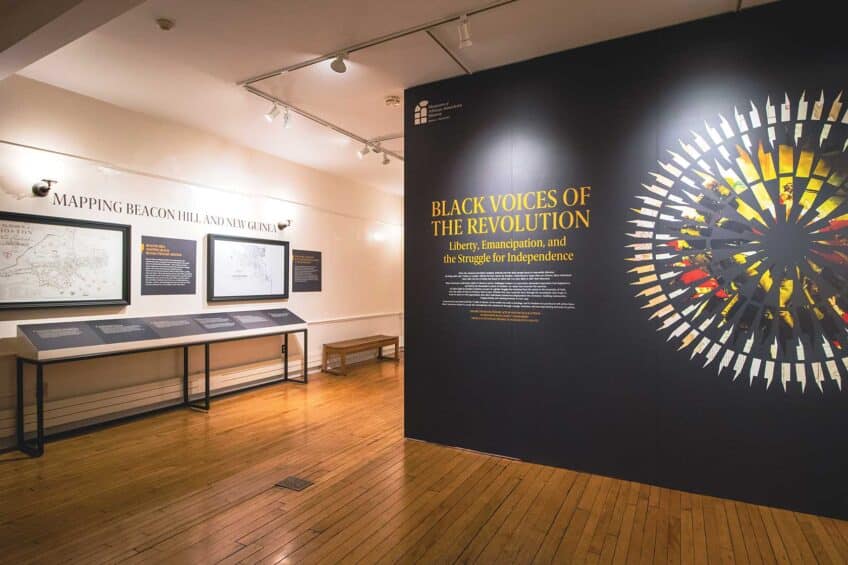Gentrification and Black hair politics take stage in ‘can i touch it?’ at The Strand

Playwright Francisca Da Silveira grew up in Roxbury and Dorchester and has watched both neighborhoods change and develop, for better or worse, over the years. In her new play “can i touch it?” Da Silveira explores gentrification in Boston through the lens of Black hair politics.
“can i touch it?” runs July 22 through Aug. 13 at the Strand Theatre in Uphams Corner. Tickets are pay-what-you-can for every performance. In the show, directed by Summer L. Williams, business owner Shay Solomon fights to keep her beauty store open as gentrification creeps into Roxbury and Dorchester. Along the way, she gets different perspectives from her daughter, her niece and employee, and fellow activists.

Playwright Francisca Da Silveira, center, with director Summer L. Williams, left, and dramaturg Afrikah Smith PHOTO: CHRISTIAN RUIZ
The idea formed for Da Silveira during a graduate year of study at the University of Edinburgh in Scotland. While away, she was reading about the name change in Boston of Dudley Square to Nubian Square, and at the same time was encountering a lot of questions as one of the few people of color in the university program. She saw parallels between the two dialogues.
“In the play, there are these interlude scenes that I call “FAQs” — Frequently
Asked Questions — and they are described as being the peaceful place that women of color have to recede to when they get asked stupid-ass questions,” says Da Silveira. Typical hair-related questions are things like Can I touch it? Is it expensive? How long does it take? Just as tools for confining Black hairstyles into white standards are marketed as useful, gentrification is often posed as a benefit to a community rather than a threat.
“can i touch it?” explores not only how the gentrification process pressures longtime residents out of an area, but how financial obligations can make it difficult to fight these forces. Everyone contributes to the cause in a different way, based on their situations, and the characters are sometimes at odds with each other as a result.
For Da Silveira, the staging at the Strand Theatre is a dream come true. “This is a place that I grew up walking by every single day,” the playwright says. “It’s a place that I never thought I would have a play, let alone my first big production.” In keeping with the play’s themes, the Strand has stood in Uphams Corner since 1918 and has remained steadfast through generations of change in the city.
Da Silveira and Williams hope that the production starts a broader dialogue about the neighborhood. “A play like this is about the place, for the place, in the place,” says Da Silveira. “I hope it feels very comfortable and familiar and of home.”







